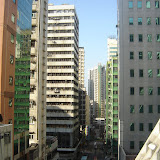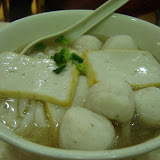While on the bus for hours on end, the group began singing various songs, and one in particular became our theme song, so to speak, for the duration of the trip. (It was either sing On Holy Ground or listen to Christmas carols or renditions of Amazing Grace sung to such tunes as House of the Rising Sun.)
On Holy Ground
When I walked through the doors I sensed his presence
And I knew this was a place where love abounds
For this is a temple the God we love abides here
And we are standing in his presence
On holy ground
We are standing on holy ground
And I know there are angels all around
Let us praise, praise God now, praise him anyhow
For we are standing in his sweet presence
On holy ground
In his presence I know there is joy beyond all measure
And at his feet sweet peace of mind can still be found
For when we have a need he is still the answer
Reach out and claim it for we are standing
On holy ground
We are standing on holy ground
And I know there are angels all around
Let us praise, praise God now, praise him anyhow
For we are standing in his sweet presence
On holy ground
In truth, we really did walk upon holy ground throughout this trip: within the walls of Chi Lin Nunnery, upon the cool tiles of Sultan Mosque, outside the hot buildings of Masjid Negara Malaysia, along the dank alleyways of Little India, inside the shops at Tsim Sha Tsui, beside the cool waters of Nha Trang beach... It wasn't the beautiful landscapes or the scenery that caught our eyes. Wherever we went as a group, as a community of peoples of faith journeying together, we walked on holy ground.
Discussion Calendar
- Jan06 Depart SFO
- Jan07 JK & MT
- Jan08 Kelly: LGBT/Prog. mvmts
- Jan09 Emily: Globalization/sex trafficking
- Jan10 Susie: Islamic symbols/rituals
- Jan11 Gary: Interreligious dialogue
- Jan12 Abby: Neocolonialism
- Jan13 Hoang-Anh: Tourism
- Jan14 (Worship) Alan: Missionary mvmts
- Jan15 JK & MT
- Jan16 Candis: Youth/leadership/resistance & hope
- Jan17 Amy & Melissa: Amerasian/children
- Jan18 Pat: Indigenous symbols/rituals
- Jan19 Theresa: Theologies of hope
- Jan20 JK, MT, Ginny
- Jan21 Return to SFO
Course Description
While Vietnam and Malaysia are both post-colonial Southeast Asian nations with a long history of colonial domination, they have very distinctive socio-cultural, political, and religious realities. This travel seminar seeks to introduce participants to the religious landscapes in these two distinctive contexts. Attention will also be given to the study of theology in Malaysia and Vietnam. There will also be short visits to theological institutions & sight-seeing opportunities in Hong Kong and Singapore. The seminar counts as a contextual learning course for PSR M.Div. students by providing experiences for cross-cultural and multi-relgious encounters and exchanges, as well as immersion in the cultures and everyday life of peoples and local communities in the regions which we will be visiting.
In this seminar, participants will:
- 1. Visit a number of theological and religious institutions located in Hong Kong, Singapore, Malaysia, and Vietnam—including Protestant and Catholic seminaries, Buddhist temples and pagodas, Muslim mosques, Hindu temples;
- 2. Visit vestiges and sites of cultural and political significance—for example, the Chi Lin Nunnery and Fish Gate in Hong Kong; the Haw Par Villa, Lit-tle India, and Kampong Glam in Singapore; A Famosa, Batu Caves, and Dataran Merdeka in Malaysia; the Cu Chi tunnels, Vinh Nghiem Pagoda, Thap Ba Ponagar, Dam Market, Thap Cham Phan Rang of Vietnam;
- 3. Engage in dialogue with seminary faculty & students, religious leaders, and community activists to gain insights on the cultural and religious landscapes of Malaysia and Vietnam for the understanding of the negotia-tions between religion and state under the ideologies of “rukunegara” (Malaysia’s Principles of Nationhood) and “doi moi” (Vietnam’s economic reform policy);
- 4. Read selected articles, research web resources, and do additional research necessary to gain knowledge on a particular issue of their choice related to any of the themes presented in the course description;
- 5. Learn what it takes to cultivate a disposition of receptivity and reflexivity for engaging cultural and religious “otherness”; and the importance of re-flecting on one’s social location for critical social analysis and theological construction that takes seriously context and partnerships with communi-ties;
- 6. Engage in self-critical reflection, connecting the personal to social, one’s own social location with the cultural-religious contexts of others; and ar-ticulate how this immersion contributes to one’s formation as a religious leader in one’s future context(s).










1 comment:
Well said.
Post a Comment